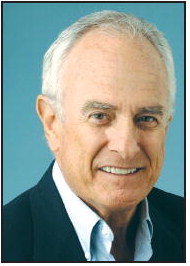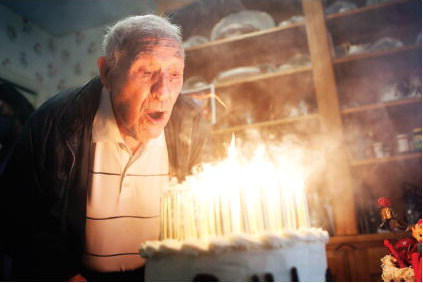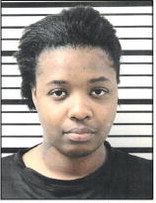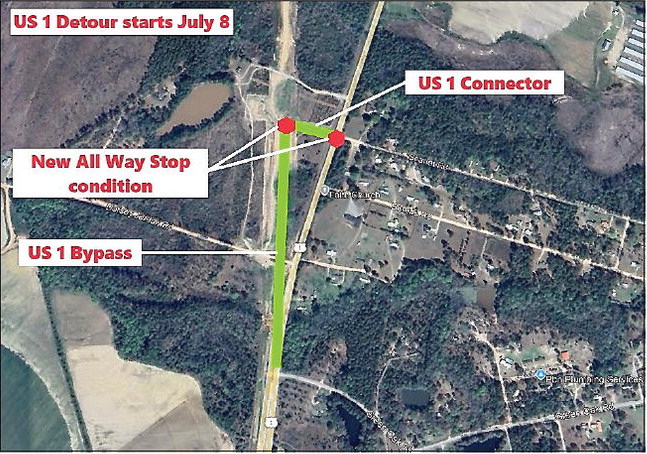Charley Trippi


Charley Trippi, one of the most celebrated athletes in Georgia history, turned 99 yesterday. The old warhorse was low key and subdued, advancing age having robbed him of the electric energy and suppleness that once drove him to remarkable athletic achievement.
Yet, he was up to blowing out 99 candles on a cake, made by Joyce Phillilps of Winterville, with his wife, Peggy, egging him on. He rose to the occasion as he often did on the football field and smiled his way through the celebratory moment.
For the first time in his life, he did not spend his birthday outdoors. Well into his nineties, he was usually outside working in his yard most days of the year.
If you had stopped by to see him with the good news that you had hired a yard service for him, he would have refused the perk. Given his clever personality, however, he might have noted that he would take the money but would do the yardwork himself.
Trippi was one of the keenest “one-liner” proponents I have ever known. He once said of an associate, who was not known for clever investment decisions, “If he gets in, you get out.”
One chilly November day at a Georgia football practice when Trippi was Georgia’s backfield coach, the wind, gusting about, was making it difficult to throw the ball without interference. Quarterback Larry Rakestraw threw a pass on an out route when a sudden burst of wind literally lifted the ball up and with a jet-like thrust caused it to sail over the concrete wall, which once surrounded the practice field. Trippi cracked, “Touch ‘em all, Rakestraw, that one is outta here.”
John Rauch, quarterback in two years of Trippi’s salad days in Athens used to refer to Trippi’s caustic and savvy wit as “zingers.” That was the refreshing side of this man, whose light-hearted banter characterized his personality.
After he retired from the old Chicago Cardinals in the late fifties, his collegiate coach, Wallace Butts, hired him for the 1958 season as backfield coach, an arrangement where Trippi could enjoy a football connection, raise his family in a college town environment and pursue real estate interests on the side.
Dealing as a principal, Trippi fared extremely well. Recruiting demands were not anything like today so there was truly an off-season, which allowed him to make deals and play golf at the Athens Country Club, enjoying the good life—a very different lifestyle from what he experienced growing up.
His Sicilian father had emigrated from the old country and settled in Pittston, Penn. He lived the hardscrabble life of a coal miner, which his son aspired to avoid. If it had not been for football and Coca-Cola, the coal mines might have been Trippi’s future.
In the post-Depression years, Harold Hirsch, an attorney, who had graduated from the University of Georgia law school, was the legal counsel for The Coca-Cola Company. His feelings for his alma mater were substantial. He kept the Athletic Association afloat in the hardest of times in the thirties. One of his consequential measures was to find summer jobs for Bulldog football players, but before that, many enjoyed a connection with the soft drink company—one of whom was Harold “War Eagle” Ketron of Clarkesville in the North Georgia Mountains. Ketron lettered on the 1901-02-03 teams. He was captain in 1903 but came back to letter in 1906, which was legal in those days. He became the Coke bottler in Wilkes-Barre, Penn., a mere 7.7 miles from Pittston, Trippi’s hometown.
It was Ketron who befriended Trippi when he saw the latter play football for Pittston’s high school team. He gave Trippi a Coca- Cola route early on. The enterprising teenager soon was making more money as a high school student than his coal-miner father was.
Times were, nonetheless, austere for the family. Trippi’s father did not want him to play football. “You’ll get your leg broke and I will break the other one,” he said to his precocious son. The message was simple. A broken limb would present the family with a medical bill that they could not afford.
Times were so tough that the only way Trippi could compete in football was for his high school coach, Paul Shebby, who later would coach another Bulldog star, Zeke Bratkowski, to gift Trippi with a pair of cleats. Trippi began his career as a punter. In a game when the center snapped the ball over Trippi’s head, Shebby saw for the first time, Trippi’s natural running skills. Trippi retrieved the ball, and weaved and juked his way through the defense for a touchdown. He became a backfield fixture immediately and forever.
All the time, Harold Ketron was whispering in Trippi’s ear that a scholarship awaited him in Athens, Georgia. Trippi’s father was overwhelmed that his son would be able to earn a college education. Later, following a spectacular prep year at LaSalle Academy, he got the attention of colleges everywhere, including Ohio State and Notre Dame.
His old school father would not allow his head or that of his son be turned. Trippi had given Ketron his word that he would enroll at Georgia, and a handshake was as good as any ironclad contract a seasoned Harvard lawyer could have drafted.
When Trippi arrived in Athens, wearing the Coca-Cola trousers issued by the bottler back home, he set about taking his classwork seriously. He played on the 1941 freshman team, which simulated the opposition’s plays for the Orange Bowl bound Bulldogs, Georgia’s first to go bowling. Frank Sinkwich was the big star on that varsity team. Both Sinkwich and Trippi, blessed with different running styles, were mind boggling great as tailbacks in the single wing system when Trippi moved up to the Varsity.
With Trippi becoming a sophomore in 1942, Bill Hartman, backfield coach recommended to Butts that they move Sinkwich to fullback, bringing about a Mr. Inside setup for the Youngtown, Ohio, native who played ten games in 1941 with a broken jaw which, no doubt, helped him win the Heisman trophy a year later. Trippi, with his remarkable athleticism, was Mr. Outside. Georgia’s offense became devastating.
Sinkwich didn’t have the greatest top speed. His remarkably quick busts from a standing start, however, enabled him to make many long distance runs. He often broke into space before the defense could react. Trippi then became a passer, runner and receiver. (Today he still is the only member of the National Football League Hall of Fame to have gained a thousand yards in his career, running, passing and receiving.) Near the end of that memorable ’42 season, Sinkwich sprained both ankles, which pretty much sidelined him for the Rose Bowl in which Trippi had a sensational afternoon, gaining 115 yards on 27 carries and setting up the only touchdown of the game. Coach Butts sent a hobbling Sinkwich into the game to score which caused Trippi to say: “I thought that was the right thing to do. After all, it was Frank who led us to the Rose Bowl.” One of my favorite photos is of the two of them posing together, with Trippi’s left arm around Sinkwich’s shoulder in that glorious year as World War II was raging on two fronts— Germany and Japan. Both men served in WWII. Videos of Sinkwich at the Heisman dinner in New York disclosed Frankie accepting the trophy wearing his Marine uniform.
When I reflect back on Trippi’s days in Athens, I can proudly proclaim that he became a good friend. There are several flashbacks to his time as an NFL great, who often entertained coaching friends, who were scouting college talent and had known him—during his NFL days. He would often invite me to meet them. Sometimes that would include a lunch or dinner. As an enterprising sportswriter, I was able to meet many interesting sports personalities and was overwhelmed to be interviewing wellknown players of the past.
When I, with an assist from Mike Fratello, of the Hawks, invited Tommy Lasorda of the Dodgers to speak to the Georgia football team in the late eighties, the colorful L.A. manager wanted to make sure he would be able to visit Trippi, his old friend.
Other flashbacks with the extraordinary Trippi:
His humor endeared him to all. He would recall that Coach J. B. Whitworth used to tell the Bulldog team, “We are taking 40 players and Poss.” Nobody laughed harder than Robert E. Poss, third teamer and colorful personality. Poss, later Georgia’s concessionaire, used say about his barbecue and hash, “You eat my product and you think about me all night.” That brought a big laugh from Trippi. Often, Trippi invited me on recruiting/scouting trips to high school games in Atlanta. That meant that I was the beneficiary of a thick steak and a couple of beers after the game. I always took note of his legend, as countless fans at those games would ask for his autograph. The restaurant proprietor always asked to photograph him with staff and customers.
In his day, players did not wear face guards. A mean and underhanded player, John Henry Johnson of the San Francisco 49ers, in preseason 1955, sneaked up on Trippi from the blindside and forearmed Trippi in the face. Trippi’s smashed face resulted in a lengthy hospital stay and extensive plastic surgery. While he had no ties with the mafia, a certain visitor showed up at Trippi’s hospital room with an offer to make retribution. Trippi said no. Later Johnson, knowing what might have been, said he owed his life to Trippi. He knew the implication of that hospital visit. The mafia loved its Italian sports heroes, principally Joe DiMaggio and Trippi.
Trippi, the ultimate competitor, would scratch your very eyes out for victory on the football field. I once asked him if he ever hunted, thinking he might, like many athletes, have enjoyed wing shooting? He said, with impactful humility, “Oh, no. I could never kill a little bird.”
In his senior year in 1946, a year in which he could have turned pro, Trippi led Georgia to the national championship, playing brilliantly in a 20-10 victory over North Carolina in the Sugar Bowl which included a 67-yard TD pass to Dan Edwards. He then signed a $10,000 dollar bonus contract to play a season of minor league baseball with the Atlanta Crackers. He batted .344. In late summer, his Georgia coach, Wallace Butts, asked Cracker owner Earl Mann to release Trippi so he could play in the College All-Star game in Chicago. Trippi, playing in this game for a record fourth time (he would make a fifth in that game as an NFL champion), led the all-stars to an upset victory over the defending NFL champion Chicago Bears, 16-0. He then joined the cross-town Chicago Cardinals and led them to the NFL championship, which begs the question: Has any athlete ever had a better year?
Trippi knew he could hit major league pitching from his experience in the Air Force during WWII. He could have been the first player to play both professional sports. When I asked about that, he said he would not have considered such since “it would not have been fair to either team.” In addition to being one of the greatest athletes who ever lived, Charles Louis Trippi was above all, a team player.






